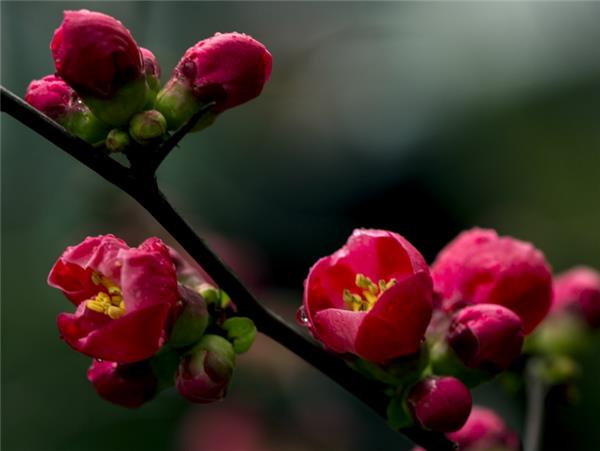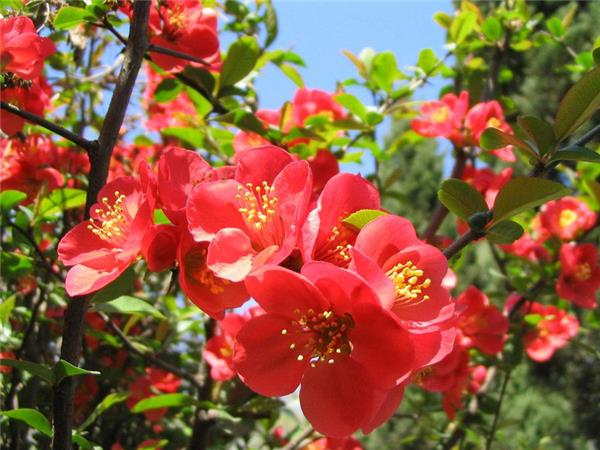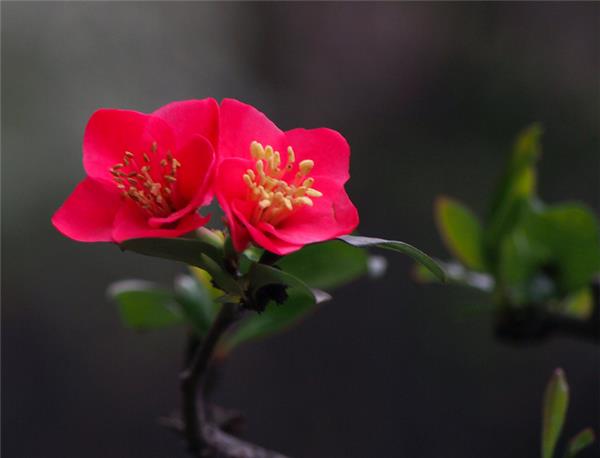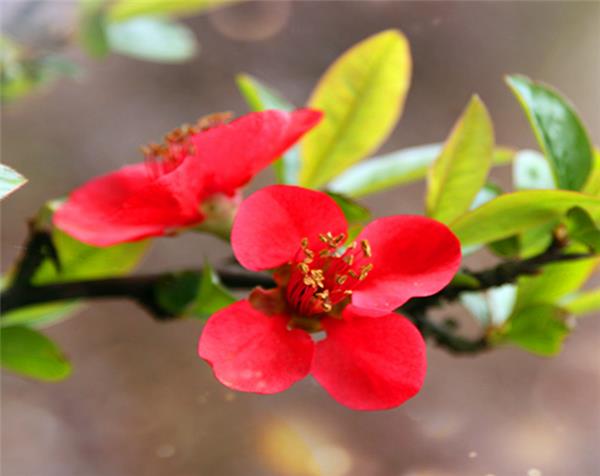The flower language of sticking the stem begonia
What is the flower language of pasting begonia? Are you also interested in this question? Next, let's give you a brief introduction.

The flower language of sticking the stem begonia
The flower language of pasting stem begonia is ordinary and enthusiastic. There is also precocity, the brilliance of goblins, pioneers, the meaning of leaders.
Stick stem begonia branches are clustered, there are thorns on the branches, the pedicel is very short, and the flowers cling to the branches, hence the name. Tripterygium is one of the main spring flowers and trees in the garden, which can not only be planted in a single plant in the garden, but also can be planted in rows as a flower hedge, and can also be used as a pot ornamental. It is an ideal flower and fruit tree stump bonsai material.

Stick stem begonia, that is, wrinkled papaya. Wrinkled papaya, deciduous shrub. Also known as wrinkled papaya, soup papaya, pedicel begonia and Xuan papaya, etc., belongs to the Rosaceae papaya plant, its branches are clustered, there are thorns on the branches, its pedicels are very short, and the flowers are close to the branches, hence the name. And its fruit can be used as a medicine, which has the function of relaxing muscles and activating collaterals and resolving dampness in the stomach. Changyang "Ziqiu wrinkled papaya" recorded in Chinese Pharmacopoeia is a kind of wild medicinal papaya, which has unique medicinal and health care value, and has the reputation of "the fruit of a hundred benefits". Wrinkled papaya is also a unique ornamental tree planted alone. It is one of the main spring flowers and trees in the garden, not only can be planted in a single plant in the garden, but also can be planted in rows as a flower hedge, but also can be used as a pot ornamental, it is an ideal flower and fruit tree stump bonsai material.
The flowering time of Tripterygium is generally from March to April. If the temperature and light are suitable, it will blossom ahead of time in January or February. The ripening period of pedicled begonia fruit (that is, wrinkled papaya) is from September to October.

There are also several planting methods of Begonia, among which cutting propagation, pressing propagation and seed reproduction are common. The method of cuttage propagation is to use well-developed 1-2-year-old branches, which can be planted in a large area before sprouting in spring or after falling leaves in autumn.
The method of strip propagation generally digs holes around the old tree in spring and autumn, and then bends the branches growing in the roots of the old trees and presses them into the soil, but to keep the branches outside the holes, the purpose is to promote them to take root and sprout. use a knife to cut a gap in the base of the branch near the old tree, cut off the branch after it takes root, and transplant with the root. When transplanting, it is necessary to select a good plot and dig a tree hole, so that the depth of the planted tree is basically the same as the original root mark of the seedling. So that the root system can stretch in the hole, and then pour enough water on the fixed root when it is planted. Generally, the best transplanting time is in spring and autumn.

Relatively speaking, the seed reproduction method is the simplest, as long as the autumn sowing begins in late October, the mature fresh papaya seeds are selected and the seeds can be sown after the outer skin is slightly dried. You can also collect the seeds and hide the wet sand until the next spring before sowing.
In addition, each method of reproduction should pay attention to the timing of planting, seedlings can be dug out in winter, transplanting should be carried out in the weather when there is no snow in winter or in February of the following spring, according to 2m plant spacing and 2m row spacing. In order to ensure the survival of the seedlings, it is necessary to water and cultivate the soil after planting. Wait until the third year, the seedlings have survived, you can dig holes according to the plant, and mix the rotten barnyard manure with the soil. Apply it into the hole, then cover the soil after fertilization and irrigate the soil to preserve soil moisture to ensure the survival of the seedlings.
Related
- Wuhan Hospital Iron Tree Blooming Result Was Instantly Frightened by the Gardener Master
- Which variety of camellia is the most fragrant and best? Which one do you like best?
- What is the small blue coat, the breeding methods and matters needing attention of the succulent plant
- Dormancy time and maintenance management of succulent plants during dormancy
- Minas succulent how to raise, Minas succulent plant pictures
- What are the varieties of winter succulent plants
- How to raise succulent plants in twelve rolls? let's take a look at some experience of breeding twelve rolls.
- Attention should be paid to water control for succulent plants during dormant period (winter and summer)
- Watering experience of twelve rolls of succulent plants
- Techniques for fertilizing succulent plants. An article will let you know how to fertilize succulent plants.



